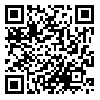BibTeX | RIS | EndNote | Medlars | ProCite | Reference Manager | RefWorks
Send citation to:
URL: http://journal.rums.ac.ir/article-1-2917-en.html

 , M. Khaksari Haddad
, M. Khaksari Haddad 
 , H. Najafipour
, H. Najafipour 
 , A.R. Saberi Kakhaki
, A.R. Saberi Kakhaki 
 , N. Nakhaie
, N. Nakhaie 
 , R. Abbasi
, R. Abbasi 

Background and Objectives: The effect of endurance training on lipid profile
and cardiovascular endurance in normal rat after Bunium Persicum Extract (BPE)
administration has been previously investigated. In the present study, the
effect of co-administration of endurance training and persicum extract on plasma lipid and lipoproteins in
hypercholesterolemic male mice was examined.
Material
and Methods: In
this experimental study, 60 male mice were, randomly, divided into 4 groups:
Vehicle, Endurance Training (ET), Bunium Persicum Extract Administer (BPEA) and
ET-BPEA group. The Exercise protocol was performed at a speed of 18 m/min, 40
min/day, 5 day/week for 6-weeks. The Bunium Persicum Extract was also administered
in the same period and the desired dose (0.8 mg) was reconstituted in 0.4 ml of
distilled water. The amount of Triglyceride (TG), Total Cholesterol (TC),
HDL-c, LDL-c and Body Weight were registered at the beginning and also at the
end of the 6 weeks. Data were analysed using one-way ANOVA method.
Results: The results indicated that the
6-week endurance training accompanied by Bunium Persicum aquous extract
administration reduced TC (pretest 297.7±37.08, post test 146.1±30.8,
p=0.019) and LDL-c concentrations (pretest 151.8±14.4, post test 0.12±8.7,
p=0.001). On the other hand, Bunium Persicum aquous extract administration
increased HDL-c concentration significantly (pretest 75.9±12.1, post test
119.9±17.9, p=0.003). Furthermore, the results showed that body weight changes
were not significant.
Conclusion: These results suggest that co-administration
of BPE and ET could significantly affect
plasma lipid and lipoproteins. Therfore
performing such program maybe useful for preventing cardiovascular diseases.
Key words: Endurance Training, BPE, Plasma
Lipoproteins, Lipids, Mice
Funding: This research was funded by Kerman
University of Medical Sciences, and Shahid Bahonar University of Kerman.
Conflict
of interest: None declared.
gte vml 1]>![]() Ethical Approval: The Ethical Committee of Kerman University of Medical
Sciences approved the study. (Ethical code 85-86 KA)
Ethical Approval: The Ethical Committee of Kerman University of Medical
Sciences approved the study. (Ethical code 85-86 KA)
Received: 2015/09/30 | Accepted: 2015/09/30 | Published: 2015/09/30
| Rights and permissions | |
 |
This work is licensed under a Creative Commons Attribution-NonCommercial 4.0 International License. |




